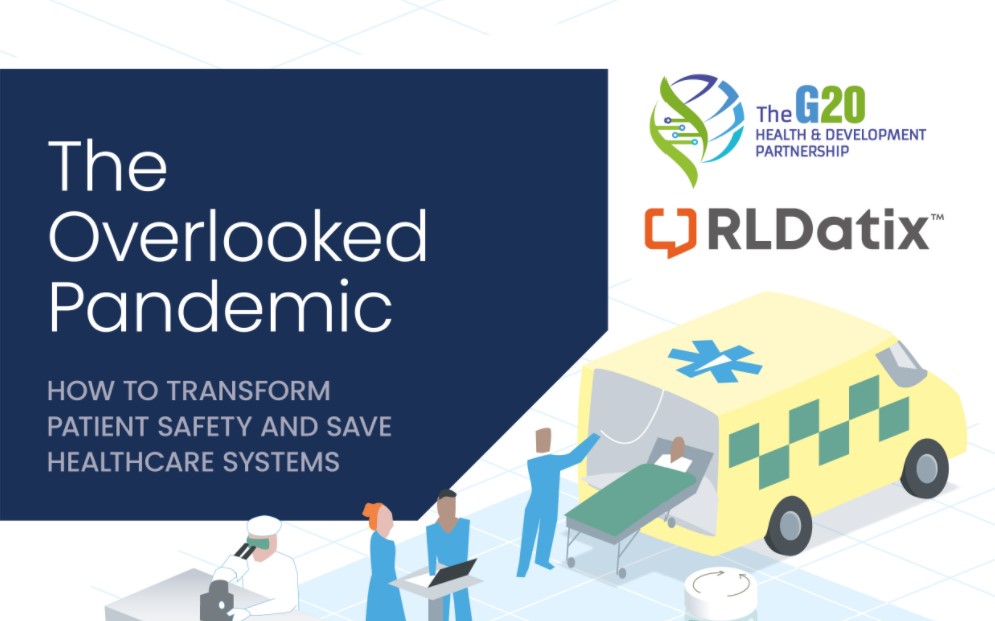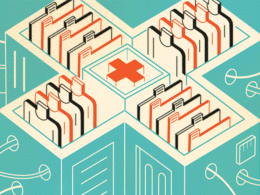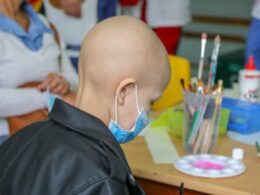THE OVERLOOKED PANDEMIC: How to Transform Patient Safety and Save Healthcare Systems
G20 Health and Development Partnership
18th March, 2021
INTRODUCTION — The Business & Human Case for Patient Safety
Developed by The G20 Health & Development Partnership and RLDatix, this report brings together an elected group of experts from across International Organisations, G20 Governments, The Global Health Community and Civil Society to address the challenges that patients and health workers have faced and are currently facing amidst the COVID-19 pandemic.
It highlights how the safety of patients and health workers is inexorably linked to all global health challenges including infectious and non-communicable diseases.
Patient Safety in Numbers
- Before the start of the pandemic, 1 in 10 patients were harmed while receiving hospital care (WHO).
- Unsafe care results in over 3 million deaths each year worldwide (WHO).
- The social cost of patient harm is US$ 1–2 trillion a year.
Eliminating harm could boost global economic growth by over 0.7% a year. This adds up to more than US$ 29 trillion, or about 36% of current global output over a decade (OECD).
- The risk of healthcare associated infections in low- and middle-income countries is 20 times higher than in high-income countries (Commonwealth).
- US$383.7 billion: The forecasted cost to the global economy by 2022 due to patient safety issues (G20)
- 4 in 100 people die from unsafe care in the developing world (WHO).
- Unsafe care disproportionately impacts low- and middle-income countries, where 134 million adverse events occur in hospitals every year, contributing to 2.6 million deaths (WHO).
- According to available estimates, approximately 20% of all-cause global deaths are due to sepsis, disproportionately affecting neonates, pregnant or recently pregnant women, and people living in low-resource settings (Global Sepsis Alliance).
Introduction
FOREWORD
In March 2019 the Kingdom of Saudi Arabia had the honour of hosting the fourth global ministerial summit on patient safety.
The event was attended by over 1500 global health experts from around the world. It was organised in cooperation with WHO and the governments of Japan, Germany and the United Kingdom.
“Both patient safety and health workers’ safety are fundamental for building resilient healthcare systems and a sustainable world economy.”
The aim of the Ministerial Summit was to identify scalable and sustainable solutions to the challenge of ensuring patients are kept safe when they are often at their most vulnerable.
The summit concluded that if we are to deliver Universal Health Coverage and Sustainable Development Goal (SDG) 3 to meet to United Nations SDG targets by 2030, we need better collaboration to improve and promote patient safety globally.
Patient safety has a high priority in Saudi Arabia, as the safety of our patients and health workers means the safety of our societies and economies now and for the years to come.
This is why for Saudi Arabia’s G20 Presidency under the theme, ‘Realising Opportunities for the 21st Century’, the Kingdom made global health and patient safety a central tenet of the Presidency by putting people empowerment at its centre.
With the unprecedented COVID-19 pandemic sweeping across the world, global health has become an even more critical area for international cooperation.
Therefore, it was essential that this year’s G20 Presidency had a robust health track. Given that the Kingdom of Saudi Arabia had created a national patient safety centre to take forward new policies that put the patient at the heart of the healthcare system, this year’s G20 Presidency introduced, for the first time, ‘Patient Safety’ onto the G20 agenda.
This approach has also been central in supporting the goals and values of Saudi Arabia’s Vision 2030 goals and its three main pillars — a vibrant society, a thriving economy and an ambitious nation — with the overarching goal of making the Kingdom an exemplary and leading nation in all aspects.
The op-eds by distinguished leaders of the global health and economic community in this report demonstrate why we must carry forward the importance of promoting the health and wellbeing of our patients and health workers to next G20 and G7 Presidencies that include the Italian G20 Presidency and the UK G7 Presidency in 2021.
A year after the Jeddah Global Ministerial meeting, and in the midst of this pandemic, it has become even clearer that both patient safety and health workers’ safety are fundamental for building resilient healthcare systems and a sustainable world economy.
The Kingdom of Saudi Arabia is committed to continue to play its part in improving patient safety and global health security in this challenging period for all citizens around the world.
Jeff Surges
INTRODUCTION
COVID-19 has shone a light on the challenges facing millions of patients and frontline health workers around the world.
” The G20’s inclusion of patient safety as a central tenet of the 2020 G20 summit and the WHO’s charter on patient safety shows that, globally, we are uniting around a shared vision of patient and health worker safety.”
- Before the start of the pandemic, 1 in 10 patients were harmed while receiving hospital care according to the World Health Organization (WHO)[1] .
- Since then, further challenges have emerged that contribute to patient and health worker harm, including increased infection rates, overcrowded facilities and limited access to personal protective equipment (PPE).
- Furthermore, the socio-economic consequences of COVID-19 continue to devastate communities.
On a macroeconomic scale, the pandemic has left G20 economies with a deficit of USD 12 trillion, exceeding the 2008 economic crisis entirely. - To build back our economies stronger and better than before, we need to proactively identify and prevent risks, care for the mental and physical wellbeing of global health workers and ensure patient safety is at the forefront of the global healthcare agenda.
- To this end, the WHO, the Organisation for Economic Co-operation and Development (OECD) and the G20 have joined together with civil-society organisations around the world to address the challenges facing patient and health worker safety and to discuss how the leadership of policymakers, existing digital health solutions and best practices across care settings can help move us towards a world free of preventable patient and health worker harm.
In 2019, the G20 Presidency, under the auspices of the Kingdom of Saudi Arabia, placed patient and health worker safety at the heart of the national agendas of G20 governments.
This work was further supported by the WHO, who, on World Patient Day 2020[2], issued a charter on health worker safety dedicated to the millions of health workers fighting COVID-19 across the globe.
Outside of healthcare, industries such as aviation and nuclear energy serve as success stories when it comes to safety and reinforce the notion that more can be done.
- In aviation, an individual has a 1 in a million chance of being harmed while travelling on a plane,
- whereas the chance of a patient experiencing harm in healthcare is 1 in 300.
These numbers alone demonstrate a clear need for coordinated action to address safety in healthcare while providing hope for what’s possible if we commit ourselves to change.
All of this lends itself to the need for fast, coordinated and effective solutions to address patient and health worker safety, including digital health technology.
Technological innovations will undoubtedly pave the way for global economic recoveries while at the same time mitigating — and ultimately preventing — harm to health workers and patients.
What’s more, transforming institutional and global care delivery to achieve ‘Zero Harm’ demands systemic and cultural change across healthcare organisations.
This will only be achieved through continual learnings that prevent safety events and near misses from happening again and through programs that prioritise health worker safety.
At RLDatix, we are committed to building digital health and patient safety tools to help achieve the United Nations Sustainable Development target by 2030.
For more than three decades, we have been a trusted ethical patient safety and risk management software and services provider for organisations across G20 countries, including the United Kingdom, the United States, the Kingdom of Saudi Arabia, Australia, Canada and Denmark.
RLDatix’s Communication and Optimal Resolution (CANDOR) program helps hospitals and health systems respond to harmful events and is supported by robust software for proactive interventions with patients, families and affected health workers.
It prioritises the importance of responding in a principled manner following a harm event by engaging patients and families, caring for caregivers, learning from incidents and revising organisational policies and procedures to ensure institutional changes take place to prevent future harm.
The G20’s inclusion of patient safety as a central tenet of the 2020 G20 summit and the WHO’s charter on patient safety shows that, globally, we are uniting around a shared vision of patient and health worker safety.
This report brings together an elected group of experts from across International Organisations, G20 Governments, The Global Health Community and Civil Society to address the challenges that patients and health workers have faced and are currently facing amidst the COVID-19 pandemic.
It demonstrates how the safety of patients and health workers is inexorably linked to all global health challenges including infectious and non-communicable diseases.
What this report makes abundantly clear is that without acknowledging the safety challenges that patients and health workers face, reopening our societies, growing our economies and improving the resiliency of healthcare systems will be more challenging than ever.
The time to change is now.
References:
[1] See: www.who.int/news-room/photo-story/photo-story-detail/10-facts-on-patient-safety, accessed March 2021.
[2] See: www.who.int/docs/default-source/world-patient-safety-day/health-worker-safety-charter-wpsd-17-september-2020-3-1. pdf?sfvrsn=2cb6752d_2, accessed March 2021.
Names cited:
HRH Prince Khalid bin Bandar Al Saud, Ambassador, Royal Embassy of the Kingdom of Saudi Arabia to the United Kingdom;
Jeff Surges, Chief Executive Officer, RLDatix;
Dr. Tedros Adhanom Ghebreyesus, Director-General, World Health Organization;
Dr. Abdulelah Alhawsawi, Global Ambassador, The G20 Health and Development Partnership; Former Director General, Saudi Patient Safety Centre;
Guy Ryder, Director-General, International Labour Organization;
Dr. Rafael Mariano Grossi, Director General, International Atomic Energy Agency;
Professor Konrad Reinhart, Chairman, Global Sepsis Alliance;
Dr. Imrana Malik, Member of the Steering Committee, Global Sepsis Alliance;
Annette Kennedy, President, International Council of Nurses;
Hon Professor (DPU) Dr. Med. Günther Jonitz, President, Berlin Chamber of Physicians;
Marisol Touraine, Chair of The Unitaid Executive Board;
Dr. Philippe Duneton, Executive Director, Unitaid;
Rt Hon. Jeremy Hunt MP, Member of The UK House Of Commons; Chair of the Health and Social Care Select Committee;
Alan Donnelly, Convenor, G20 Health and Development Partnership; Francesca Colombo, Head of The Health Division, OECD;
Katherine De Bienassis, Health Policy Analyst, OECD;
Dr. Giuseppe Ruocco, Chief Medical officer, Italy;
Dr. Catharina Boehme, Chief Executive Officer, FIND
Originally published at:The Overlooked Pandemic: How to Transform Patient Safety and Save Healthcare Systems
On Thursday 18th March, the G20 Health and Development Partnership in collaboration with RLDatix held an Online Panel…www.ssdhub.org












